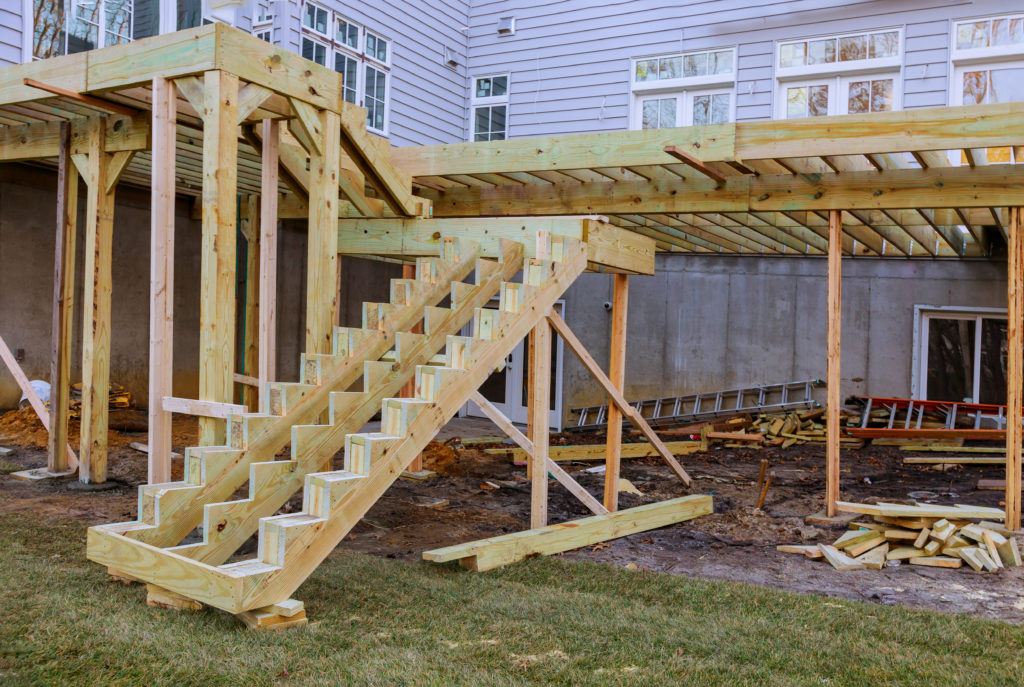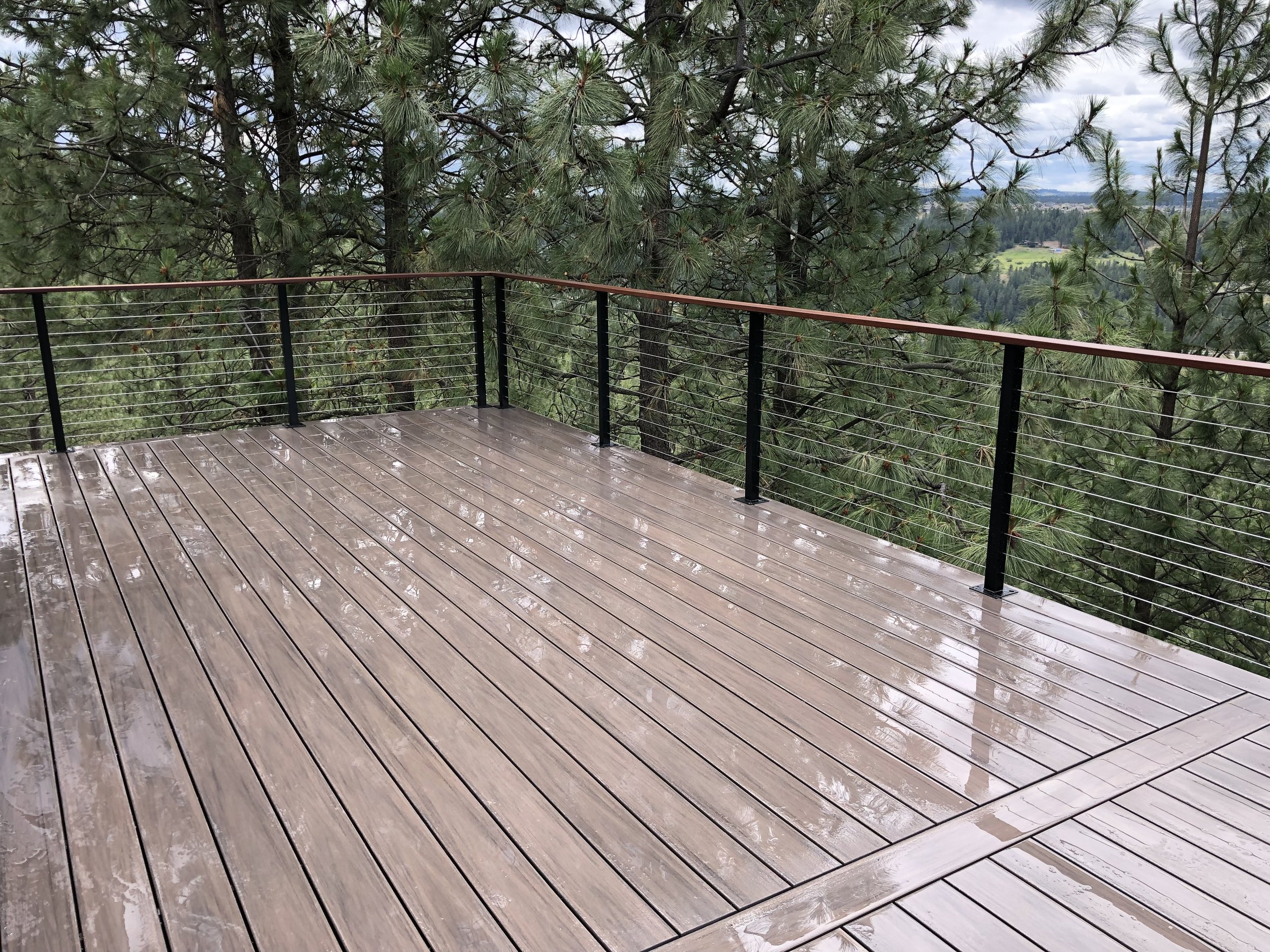Layout Your Desire Deck with Trex Decking: Top Quality You Can Depend On
Specialist Tips on Choosing the Right Deck Products for Your Home
Picking the suitable deck products for your home is a substantial decision that calls for cautious factor to consider. The selection of materials not only impacts the visual appeals but additionally the longevity and upkeep of your deck. With a wide range of alternatives available out there, from timeless wood decks to contemporary composite and PVC alternatives, making an informed choice is critical. By comprehending the key variables affecting this option, you can make certain that your deck not just complements your home but likewise stands the examination of time.
Elements to Take Into Consideration Before Choosing
Prior to picking deck materials for your home, it is essential to meticulously evaluate several vital variables that will affect your choice. The initial factor to consider is the climate in which you stay. Various materials stand up to differing climate problems in different ways. For example, if you stay in a region with high humidity or regular rainfall, you might intend to decide for materials like composite decking that are much more resistant to dampness and mold. On the other hand, if you stay in a dry and hot environment, materials like redwood or cedar could be suitable due to their natural resistance to degeneration and bugs.
Another necessary element to consider is the degree of upkeep you agree to dedicate to. Some products, such as tropical hardwoods, demand regular maintenance like staining and securing to preserve their appearance and toughness. Alternatively, composite decking requires minimal upkeep, typically only requiring occasional cleaning to protect its look. Recognizing your determination to invest effort and time right into maintaining your deck is vital for making a choice that straightens with your way of life and preferences.

Pros and Disadvantages of Timber Decks
Taking into consideration the different elements that affect the selection of deck products, it is crucial to consider the advantages and disadvantages of timber decks. Wood decks offer a natural and traditional appearance that numerous property owners find enticing.
Nonetheless, timber decks need regular upkeep, such as discoloration or sealing, to avoid rot, degeneration, and insect infestations - Trex Decking. They are additionally prone to warping, splintering, and fading as a result of direct exposure to the aspects. In regions with high moisture or severe weather, wood decks might need extra regular upkeep. Timber decks tend to have a shorter life-span compared to various other decking materials like composite or PVC.
Checking Out Compound Decking Options
When assessing decking materials for your home, checking out composite alternatives presents a low-maintenance and sturdy choice to traditional timber decks. Compound decking is a blend of timber fibers and recycled plastic, made to imitate the look of wood while offering a variety of advantages. One considerable benefit of composite outdoor decking is its toughness; it is immune to rot, bending, splintering, and pest damages, making it a long-lasting choice for your outdoor area.
In addition to its sturdiness, composite decking calls for marginal maintenance compared to wood decks. You won't require to discolor, seal, or sand composite boards consistently, conserving you effort and time in the lengthy run - Trex Decking. Compound decking is additionally readily available in a range of colors and designs, enabling you to customize your deck to suit your visual preferences
Moreover, composite decking is environment-friendly as it is commonly made from recycled materials, reducing the need for new wood. While the initial price of composite decking might be greater than wood, the lasting cost savings on maintenance and replacement make it a cost-effective alternative for numerous homeowners looking for a trusted and attractive decking product.
Understanding PVC and Plastic Decking
PVC and plastic decking are contemporary options address to typical timber outdoor decking products, offering distinct benefits for property owners seeking a low-maintenance and sturdy alternative for their exterior spaces. PVC, or polyvinyl chloride, decking is made from 100% artificial products, giving excellent resistance to moisture, fading, and insect damage.
Likewise, plastic outdoor decking is also a synthetic material known for its toughness and reduced upkeep demands. Plastic outdoor decking is commonly made from PVC, offering similar benefits such as resistance to mold and mildew, rot, and mold. It is likewise a cost-effective option in the future, as it does not call for staining, securing, or painting like wood outdoor decking does. Homeowners can appreciate their exterior areas without the concern of extensive upkeep with PVC and plastic decking options.
Comparing Deck Product Expenses
To make enlightened choices concerning decking materials, reviewing and comparing the costs of various alternatives is necessary for house owners wanting to spend sensibly in their outdoor spaces. When comparing deck product expenses, variables such as preliminary expenditures, maintenance needs, and long life has to be considered.

Compound decking, made from a blend of timber fibers and recycled plastics, often tends to have a greater upfront expense yet lower upkeep demands. This can result in long-lasting price savings in spite of the preliminary financial investment.
PVC and vinyl decking, while sturdy and low-maintenance, are among the more expensive alternatives. However, their longevity and site web very little maintenance needs can my website make them cost-efficient options in the future.

Conclusion
Finally, selecting the right deck materials for your home involves mindful consideration of variables such as upkeep, cost, and durability. Timber decks use a traditional look but call for routine upkeep, while composite decking gives a low-maintenance choice with a series of styles. PVC and plastic decking are durable and easy to maintain yet may come at a greater expense. Ultimately, considering the advantages and disadvantages of each material will certainly assist you make an informed choice for your outdoor home.
Thinking about the numerous factors that influence the selection of deck materials, it is crucial to weigh the benefits and disadvantages of timber decks - Trex Decking. Wood decks have a tendency to have a much shorter life-span contrasted to various other decking materials like composite or PVC
When reviewing outdoor decking materials for your home, exploring composite choices provides a sturdy and low-maintenance choice to typical timber decks.PVC and vinyl decking are modern options to conventional timber decking materials, providing special benefits for home owners seeking a resilient and low-maintenance alternative for their outdoor spaces. Wood decks provide a classic look yet call for regular upkeep, while composite outdoor decking gives a low-maintenance alternative with an array of designs.